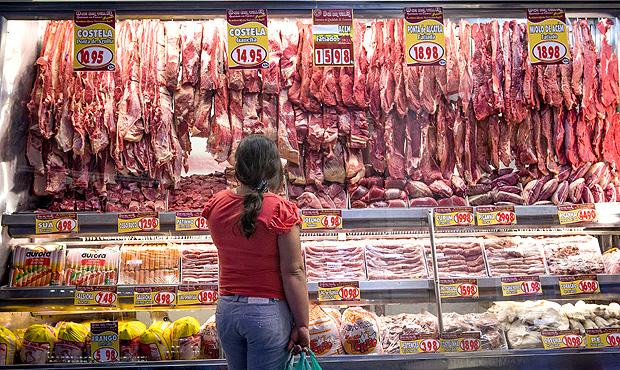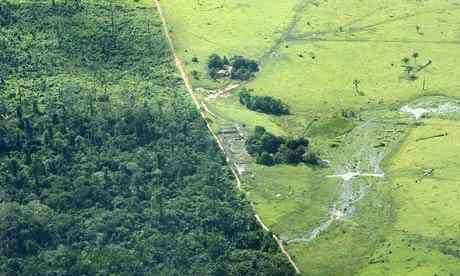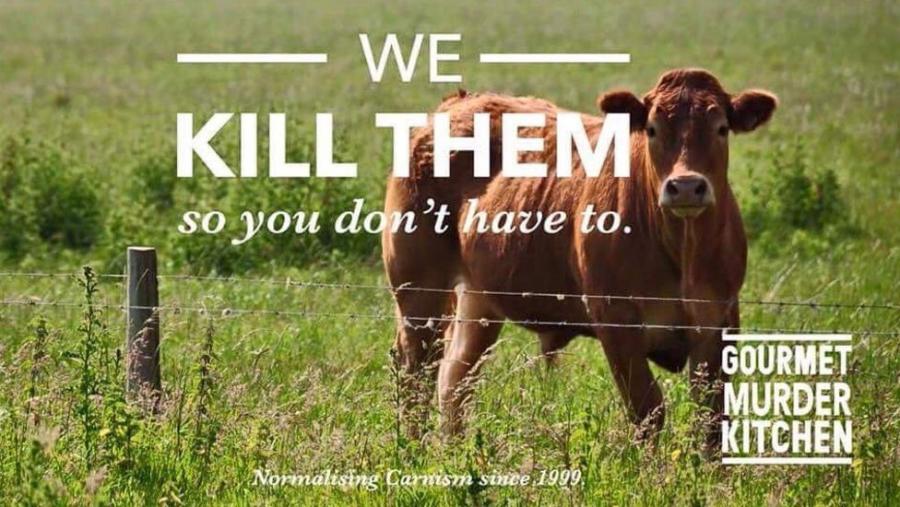
Meat is weak: why we should consider veganism
We are what we eat. Our bodies depend directly upon our healthy habits and the choices we make about our diet. Standards of beauty apart, eating is fundamental for our quality of life and our diet choices affect a whole chain of production, from farmers, to restaurants, cooperatives, companies, retails and, finally, our kitchen. There is a chain of economy behind what goes into our mouth and we should be very aware of that, especially when our choices impact the lives of other animals and our always endangered environment.
Eating is a sociocultural phenomenon and historically there is evidence of how diet has decisively impacted societies, their economy and their entire culture. In the Americas this can be seen with plantations for corn and cassava. Colonial Brazil emerged thanks to sugar cane and later on established a coffee based economy. The history of Netherlands has been impacted by several foodstuffs, such as beer or cheese. Asian societies developed through the cultivation of rice. Another example is the importance of bread in Europe or how a beer culture emerged in countries such as Belgium. Food and history are co-related. Therefore, political choices about diet have an impact on the economic and social processes in a society.
There is a whole chain of economy behind what goes into our mouth and we should be very aware of that
Recently in Portugal a law was approved making it mandatory for public restaurants to have at least one option on the menu that contains no product of animal origin, recognized as a vegan diet. The initiative came from the party PAN – Pessoas-Animais-Natureza (PAN - People-Animals-Nature, in English), and was later joined by Bloco de Esquerda (Left Front) and Os Verdes (The Greens). Also, it was supported by a petition signed by more than 15 thousand Portuguese citizens.
This Portuguese example of public policy was a cause for celebration for all vegetarians. However, at the other side of the ocean, in Brazil, the Federal Police started in March 17th an operation called Operação Carne Fraca or Meat is Weak. The title is a reference to a famous documentary about the meat industry in Brazil made by vegetarian activists from Nina Rosa Institut.
In a nutshell, the operation accuses the companies JBS S.A, which holds the trademarks Seara Alimentos, Swift Armour, Friboi, Vigor, and BRF, as well as Sadia and Perdigão, to have mixed rotten meat into the meat supply that got sold in Brazil and abroad, in other words: most of Brazilian meat related products sold in supermarkets and widely advertised on TV. Those same groups mentioned earlier are also accused by human rights activists for having poor working conditions similar to slavery.

Ronny Santos/Folhapress
This is a big corruption scandal that directly involves the parties that took power in Brazil after Dilma Rousseff’s impeachment process, a mere euphemism for a Latin American parliamentary coup d’état. Federal inspectors were paid to ignore the adulteration of expired processed food. Bribers were linked to the Brazilian Democratic Movement Party belonging to the non-legitimate President Michel Temer. According to the authorities, processed food containing rotten meat and cancerogenous additives were being given to children from southern Paraná’s schools. Thus, the meat industry was not only linked to bad health habits, but also to a complete lack of ethics regarding animal's lives, to poor working conditions, and to corruption scandals that directly affect public health.
Processed food containing rotten meat and cancerogenous additives were being sold to children from southern Paraná’s schools
It seems that there are enough arguments nowadays that prove that eating meat is not as good as the establishment suggests, or imposes, and that opting for a vegetarian diet would be safer for everybody. Arguments range between health, economy, environment and ethics, as argued by David Foster Wallace, in his article “Consider the Lobster”, for Gourmet Magazine in August of 2004.
The more important point here, though, is that the whole animal-cruelty-and-eating issue is not just complex, it’s also uncomfortable. It is, at any rate, uncomfortable for me, and for just about everyone I know who enjoys a variety of foods and yet does not want to see herself as cruel or unfeeling. As far as I can tell, my own main way of dealing with this conflict has been to avoid thinking about the whole unpleasant thing [p.6].
In this article, Wallace deals with the fact that he was sent to cover an event where a huge number of lobsters were boiled alive in public. In the end, he produced an essay about food, economy and ethics regarding the lobsters in Maine, quoting the ethicist Peter Singer, writer of Animal Liberation (1975), that for him there's a great difference between kicking a rock to the side of the road and kicking a rat, as the latter doesn’t want to be kicked. The thing is, lobsters are ultra sensitive to water temperature, they migrate inside the ocean when there is a difference of a mere few degrees. So why boiling them to death? And on a larger scale, would it be like killing several dogs or cows in public for massive consumption? This article touches on a few sensitive ethical questions for human beings to deal with. Vegetarians are the people who care about it.

Millions of hectares of trees have been felled for cattle ranching in the Amazon. Photograph: Paulo Whitaker/Reuters
Still, despite all the arguments mentioned, many people who opt for a vegetarian or vegan diet end up having to deal with the social taboo surrounding those themes, especially when it comes to the restricted vegan and vegetarian options in public spaces and restaurants. It seems that deciding to have a diet free of meat or any dairy products is a subversive act that causes revolt. This creates obstacles for many of those who opt for this type of diet to eating out. Vegetarians live like outsiders, and for them, the best option turns out to be cooking at home.
As argued above, it is possible to say that there is is a certain ideology that surrounds the eating of meat. “Why are you vegetarian?” vegetarians are asked all the time, among the many other questions that inherently betray prejudices and misinformation about social history and nutrition. Yes, humans can survive very well without animal related products, they can even be athletes. Vegetarianism is nothing new for humanity as many people might assume. In fact, the first civilizations emerged after being able to plant their own means of sustenance on a large scale. However, meat eating is still part of the establishment and turns out to be counter-productive in the fight for a more sustainable and ethical world economy.
The greedy make a luxury item like meat an accessible product, without ever taking into consideration that the whole industry is based on killing.
Yes, humans can survive very well without any animal related product, they can even be athletes. Vegetarianism is nothing new for humanity
So what about the hunters and fishermen all around the world and in history? Eating meat, in modern-capitalist times is not the same luxury that it has been for hunting and fishing communities throughout human history. For ancient societies, such as the ones represented in the bible, there were many strict rules and taboos regarding the eating of animals. Special rituals and events involved eating meat or not eating meat, such as easter, or forbade eating particular animanls, such as pigs in the islamic and jewish traditions. Modern life has transformed meat into an everyday commodity, advertised, bought and sold in retail or as street food.

What nobody realizes and what history proves is: what changed humans from nomadic hunters and gatherers to the big civilizations of our modern times is that at some point humans started growing their own plants in Mesopotamia and Egypt. Eventually the industrial revolution provided consumers with their daily meat products at a local retailer or butcher in exchange for profit. The domestication of animals is important, but it is not always that humans could afford killing their animals for supper. The reality is that in natural conditions eating meat is not a rule but an exception.
Meat is advertised and is a key feature of the fast food industry. However, consumers are kept away from where the meat comes from, from what is in fact sold to people, who the animals were, and how they were killed. It is just a commodity, not the flesh of a once live animal, as indeed it is. The Marxian commodity fetishism theory, where products take on a life of themselves and assume control over humans is well evidenced in meat advertisements, as everybody in western countries grows up with Mc Donald’s, Burger King, or KFC as models. While serious environmental questions are being discussed and raised by trustworthy scientists and police reports (such as in Brazil), eating meat is still considered a normal everyday act and not a luxury. What nobody realises is that meat is not merely a commodity, but an animal life that has been nurtured, fed and taken away.
It is necessary to say that being vegetarian and vegan doesn’t exempt any individual from not having any impact on the environment itself. And it doesn’t mean that everybody should be forced to stop eating meat or all kinds of food with animal origins from one day to the other. The point is that this subject should be discussed and reflected on critically, as it impacts our economy, our ethics, our environment and the health of us all and of our fellow animals, with whom we share the ecosystem.
Furthermore, a society where no animal is killed for human use might sound very idealistic for now, but it is important for public intellectuals engaged with this cause to discuss it in the public sphere and to raise awareness about this subject. After all, it is not only the human lives on this planet that matter and should be respected.
The Portuguese initiative should serve as an example to be followed in other countries. Recognising that nowadays the vegan argument is being accepted by a huge part of society should make it mandatory. Often, vegans out in the street have limited options, and even the big fast food companies, such as McDonald's and Burger King, have recognised this market. This has nothing to do with taking away the option of eating meat, which is already the established norm and has been doing what it does to the environment for many years. Therefore, the argument that vegetarians are keeping the meat-eaters from enjoying their "delicious" cooked flesh is simply a fellacy.